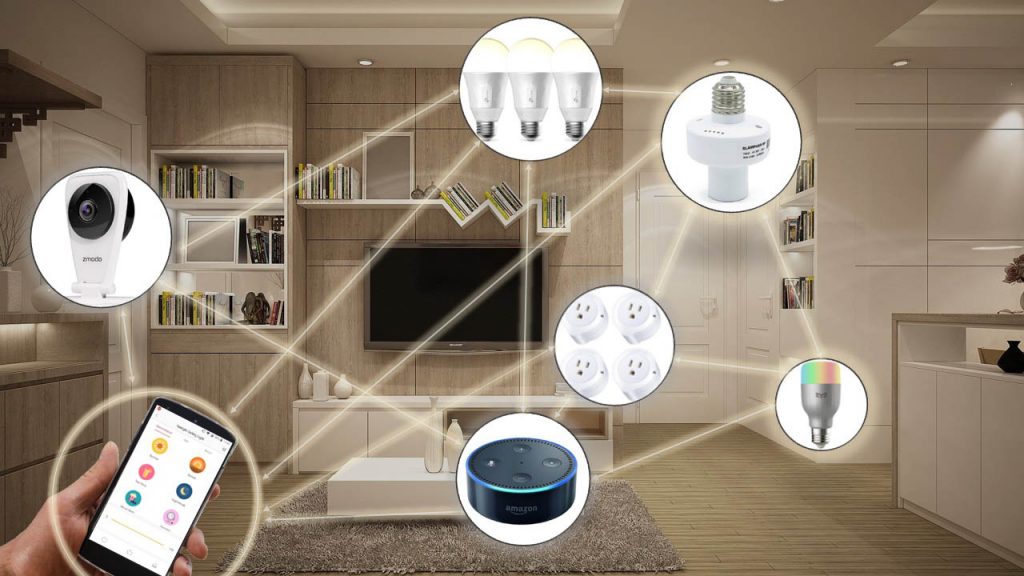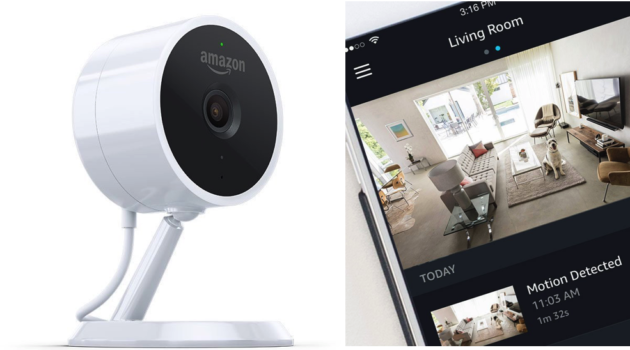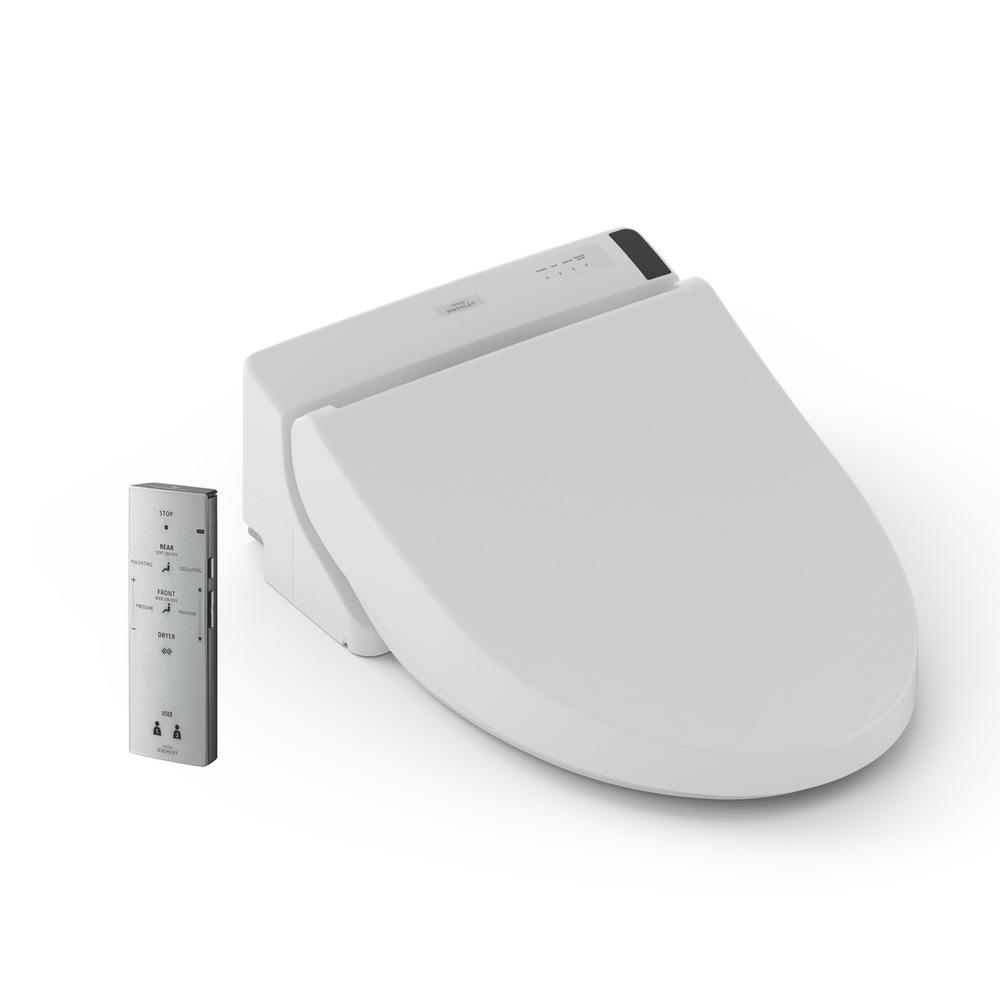On the contrary, as you may have read elsewhere, I jumped in with both feet, even against others' cautionary advice, in buying one of the first 500 Chevrolet Volts. I did so for two primary reasons and two secondary reasons (because I never do anything for just one good reason): namely, (1) I believed in the
technology, because unlike phones and CD burners, cars are highly regulated and I had faith that GM wouldn't release a bad car, (2) I presumed that GM would "pull the plug" on the Volt product line before it really established itself, #FOMO, (3) I wanted to show that there was market demand for the electric car or mostly-electric hybrid, as well as for the public chargers, and (4) I thought I was the perfect test subject to demonstrate the tech in real life and tell a fabulous story. L'il Red, as I called her, had some "new car model quirks" as could only be expected, but overall, exceeded and outperformed all expectations. I initially admitted that it wasn't a truly economically wise decision, because based on the expected long-term life of the battery and the cost of replacing said battery, even projecting some reduction in price over that time, paired with the high upfront price tag, it was still cheaper to buy an economic, efficient gas car. But, after living with her for a few months, I got smarter around the benefits, and performed an elaborate total cost of ownership analysis, including everything from the cost of the electric that replaced that gas, to the higher insurance premium and registration costs, to the minimized wear and tear on brake pads thanks to regenerative braking, and the bi-annual oil change she required. I calculated that the break even point, compared to an economic and efficient gas car, came at about 8 years, assuming no battery replacement and moderate battery degradation. It would be a stretch, I knew, because the battery had a warranty of just 7 years, and I knew my car would be operating in one of the most battery-hostile environments in the country - Phoenix, AZ. The crushing heat, indeed, so severely impacted the Nissan Leafs many of my local peers bought at the same time, that they were able to pursue litigation and return the cars under lemon laws. Take that, Volt Nay-Sayers! But I had to wait 8 years for the real happy ending; Chevy Volt # 492 is still going strong and fast approaching her 9th birthday. While a part of me knows she can turn the corner any day now, and I'd be better off getting rid of her because she does, a part of me just wants to see it to the end, to see just how far she'll go. And the practical side of me knows I'm driving for literally pennies per mile now, having no car payment and rarely needing gas or maintenance, and it's hard to think about taking all those burdens on again, remembering to fill up before work or getting her oil changed every few months, or paying on a car loan. Ugh!
Now back to the point of the story. I guess Smart Home tech may still be late in the early adopter phase, or just barely into the early part of the early majority phase, I'm not quite sure. Needless to say, I was a hard sell on this one. Buying into Smart Home tech, I realized early on, meant buying into a brand's ecosystem, and being locked in by an overwhelming cost to convert. That was cause for great hesitation, and decision paralysis when I did decide to invest. But my hesitation was probably driven more by the lack of clarity around the value it would bring to my life. I imagined walking around my house, verbally arguing with every device and talking to my speakers like they were a servant I was micromanaging, and pulling the plug, resetting devices and manually flipping switches when they refused to do as I said. Would I ever start talking to it like a friend? Not in this decade, I thought, but someday, probably. I just really couldn't see how talking to a device was that big of an improvement over flipping a light switch or an app on my phone. But I was also curious, maybe it would be an improvement. After all, I didn't think a laptop would ever be a practical replacement for a power house desktop where I had a designated spot to work on, until I had a laptop and never touched a desktop again. And I didn't think a tablet was needed when I had a laptop and a phone, but it found a place in my device spectrum that added value too. So, in the same way that my curiosity around AR led me to insist we play Pokemon Go, I knew I needed to get some Smart Home stuff going. But which brand? And what devices do I really want? Unlike Smartphones that are all-encompassing in their technology adoption, buy the phone and you're now a Smartphone user, Smart Home covers an array of inputs and results and automation or lack thereof.
I did a lot of research, and at the time of my decision point in late 2018, I came to two conclusions: Google was currently better at interpreting and responding, and Alexa was going to get better in the future. I weighed the other pro's and con's. Amazon has Audible, and I listen to a lot of audio books. Google Home would have to stream from my phone to play, while Echos can pull directly from my Audible account. I already used Amazon Music as my primary source of music - make fun of me if you will here, I know that's not what all the kids are using these days, but every time I've tried another streaming service, I've found myself wanting to go back to Amazon Music. I even put myself on an Amazon diet by listening exclusively to the music streaming services Google Home uses for a couple months. I have a lot of faith in Google's ability to grow their databases and for their assistant to become more human-like. But beyond search, there isn't much else that I use or need from Google. I don't really use Google Calendar, so its not like I would use it to remind me of events, etc. On the other hand, I buy things from Amazon, and much of my media consumption is through Amazon. So I was leaning towards Amazon, but still not 100% convinced it would properly interpret voice commands as well as the data-powered Google.
I started out brand-agnostic, buying plugs that work with both Amazon's Alexa and Google Home. I stumbled across a Google Home Mini that had been returned and was marked down as a result, so I bought it. Then, when Amazon was having a sale on its devices, I bought an Echo Dot. I put the Echo Dot in my bedroom and the Mini in my kitchen, and I tested them head-to-head to see which one responded more accurately and more hilariously. I also noticed the sound quality while listening to music and audio books. In the end, Amazon's ecosystem and quality won me over.
While the funny Easter eggs and silly games are entertaining from time to time, I still wasn't sure what to do to make my home "Smart." My boyfriend bought me an Ecobee thermostat for Christmas. I know Nest is well-known and popular or whatever, but I had an older model of Ecobee at my first house and I loved the features, internet connectivity and smart phone app. We installed the Ecobee and connected that to my Alexa. I bought an Echo and a few more Dots to put around the house. I started to really enjoy listening to music or audiobooks in multiple rooms, although the audiobooks on multiple speakers was wonky and didn't always work properly or at all. I had three things on smart plugs: a floor lamp in my family room, a desk lamp by my bed, and the Christmas tree lights. I set a digital timer on the Christmas tree lights, but also added it to routines to turn on like when I came home.
 My new house came with a wifi and app-compatible garage door opener, which I've used extensively in lieu of bringing a house key and fumbling with the door lock on my morning runs. However, the garage door opener and app don't work with Alexa, only Google. Can't we all just (make our apps) get along? I'm not saying I would use it often, but it would be nice to be able to shut the garage door with Alexa. Ah well, it all goes to my phone and I can still control it from there.
My new house came with a wifi and app-compatible garage door opener, which I've used extensively in lieu of bringing a house key and fumbling with the door lock on my morning runs. However, the garage door opener and app don't work with Alexa, only Google. Can't we all just (make our apps) get along? I'm not saying I would use it often, but it would be nice to be able to shut the garage door with Alexa. Ah well, it all goes to my phone and I can still control it from there. Here's the thing: I just don't think a few smart speakers and plugs that turn lights on, and even a connected thermostat, make my home smart. But what other options are there? Dimming lights or color changing lights? I just don't see the need for that. I know I've said that about laptops and tablets before, but really, this time. The commercials show people using a video screen to check their cameras, but again, I just have a hard time seeing the need for that in my case. Maybe if I had a pet pig I was worried about, or a baby for that matter, but I have neither.
Then, there was an attempted burglary in my neighborhood, stopped by a Ring doorbell, so I decided to, for the first time in my life, get some cameras for security. I'm a big believer in minimizing subscription fees, however (says the girl who hasn't lived without Amazon Prime for a decade, and subscribes to Audible and Kindle Unlimited and Amazon Music Unlimited…). With cameras, I really don't see a need to pay for monitoring or really, anything fancy. I just want the piece of mind that if something happened, I'd capture it on video and be able to show the police, or have evidence of who or what or whatever. After another extensive read of many camera reviews, I went with the Amazon Cloud Cams, because you can have three on your account with 24 hours of footage for free, and the subscription to have more access and more cameras and more features was reasonably priced as well. I haven't paid for the subscription yet at this point, and am quite happy with the freebie service on my three cameras. I even got a fourth camera and set it up on my boyfriend's phone, it's a wider view of an otherwise redundant angle from what I have on my phone, just to capture more if/when needed. The bonus is, if the Amazon in-home delivery thing ever takes off, I have the proper camera for it already (amateur tip: I actually bought the special edition camera made just for this purpose, although I'm not sure its any different than my other Cloud Cams).
Well, wouldn't you know it, the camera facing my front door doesn't work well unless the front porch light is on. I live on a fairly busy street so when the porch light is off, every car driving by with its headlights on, which should be every car at night hopefully, sets off the motion sensor. I suffered through turning the light on in the evening and trying to remember to turn it off in the morning for far too many weeks while I once again hesitated on what technological solution I wanted to use to attack this new issue I created for myself. I was going between a smart light switch - which would be complicated because the specific lights were on a switch with three others - or smart bulbs which I could program and control with Alexa but would likely need a hub, or an unsmart solution which could be dusk-to-dawn light bulbs, or normal bulbs with dusk-to-dawn sensors attached between the bulb and the light fixture, or I could just get better at turning the lights on and off, or I could suck it up and leave them on all the time because it didn't really cost that much to have them on during the day anyways. I suffered and suffered, and finally decided I couldn't live with the current situation of either leaving them on or remembering to turn them off and on. I didn't love the idea of buying the dusk-to-dawn adapters, because they make the bulbs stick out further from the fixtures. I knew this from experience at my last house. Pro tip: If you go this route, do not use CFL bulbs. The reason is that when the darkness triggers the power, the CFL takes just a split second too long to warm up and light up, causing the adapter to read that as a different source of light, like the sun, and then sending the signal to turn off. The CFL turns off, it gets dark again, and it triggers the CFL to turn on, and so on. The result is a constant flickering that is unattractive, but also wears out your 7-year CFL bulbs to a matter of days of life. I also didn't want to buy dusk-to-dawn lightbulbs or smart lightbulbs because those would have to be replaced over and over again. But, my light switch wouldn't easily be converted to a smart switch because of all the other switches it was associated with. So I continued to suffer. Finally, there was a sale on dusk-to-dawn lightbulbs, and I pulled the trigger, knowing that the price was worth my sanity, at least for now. I love how they work right now. I'm still not sold on the value for the money, but since the cost is in my past for now, I love them.
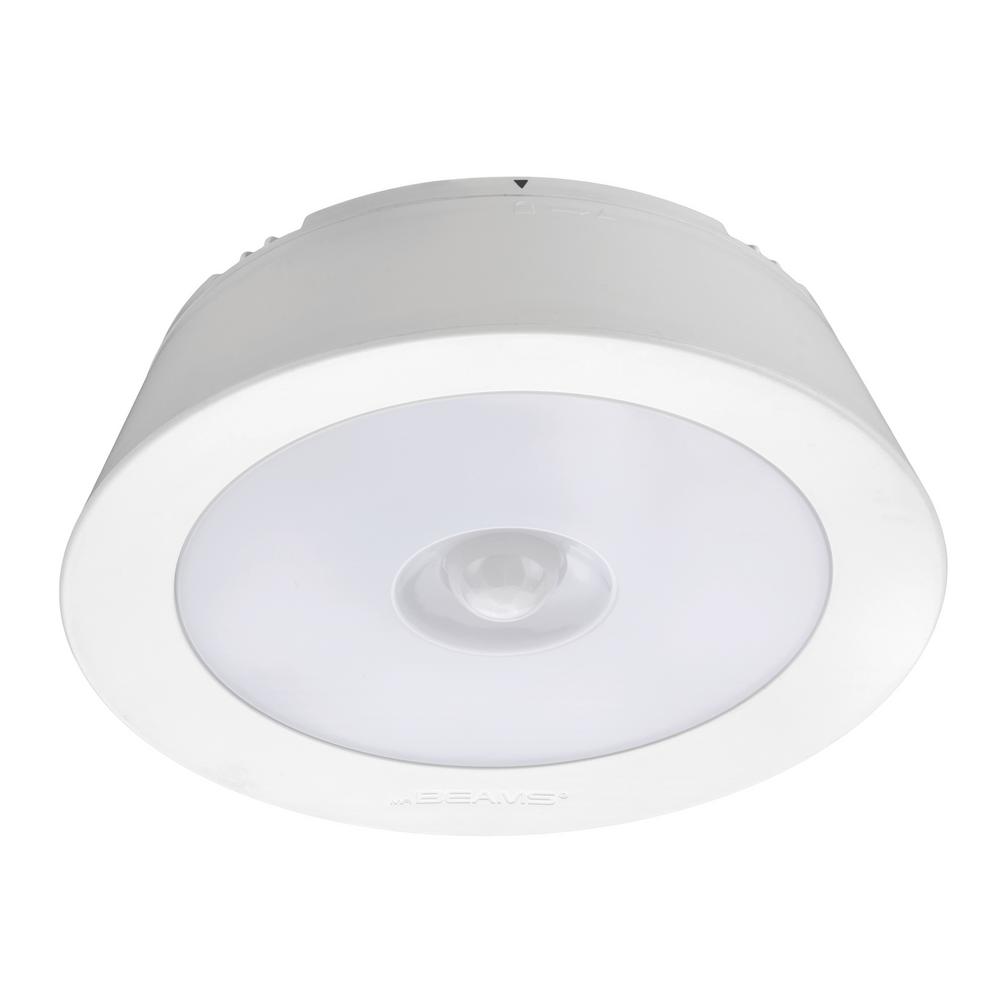 While perusing through Home Depot for something completely unrelated, I saw a promotional display with those battery-operated motion sensor lights. They weren't too expensive, so I thought I'd buy one and stick it in my wardrobe closet to see if I liked it. It turned out to be instantly useful and appreciated. Not only did the motion sensor work like a charm, almost entirely eliminating my need to flick on and off the light switch as I went in and out of my closet during my morning and evening routines, but it was less shockingly bright and therefore a bit more pleasant. But battery-operated things need battery replacements, and I am lazy, and didn't get to it for a while, so it sat idle on my ceiling for quite some time before I finally replaced the batteries. I think it was more useful for a secondary purpose: it showed me that I prefer motion sensors to light switches or voice-activation in some cases, namely, closets. Its relevant to point out here that I get up substantially earlier than my boyfriend, and so I don't exactly want to be walking around in the morning shouting commands to Alexa everywhere I go. Ultimately, I got another one of the battery-powered motion sensor lights for a hall closet that has a light just outside the closet but not inside, and I love it there just as much as I love it in my wardrobe closet, and for my wardrobe closet, I plan on replacing the light fixture in there with a wired motion sensor light fixture so I can just leave the light switch on and it will turn on and off as I need it to.
While perusing through Home Depot for something completely unrelated, I saw a promotional display with those battery-operated motion sensor lights. They weren't too expensive, so I thought I'd buy one and stick it in my wardrobe closet to see if I liked it. It turned out to be instantly useful and appreciated. Not only did the motion sensor work like a charm, almost entirely eliminating my need to flick on and off the light switch as I went in and out of my closet during my morning and evening routines, but it was less shockingly bright and therefore a bit more pleasant. But battery-operated things need battery replacements, and I am lazy, and didn't get to it for a while, so it sat idle on my ceiling for quite some time before I finally replaced the batteries. I think it was more useful for a secondary purpose: it showed me that I prefer motion sensors to light switches or voice-activation in some cases, namely, closets. Its relevant to point out here that I get up substantially earlier than my boyfriend, and so I don't exactly want to be walking around in the morning shouting commands to Alexa everywhere I go. Ultimately, I got another one of the battery-powered motion sensor lights for a hall closet that has a light just outside the closet but not inside, and I love it there just as much as I love it in my wardrobe closet, and for my wardrobe closet, I plan on replacing the light fixture in there with a wired motion sensor light fixture so I can just leave the light switch on and it will turn on and off as I need it to. What I'm getting at here, is, a truly useful, technologically-enhanced home is not necessarily just these new Smart Home accessories. Duck-to-dawn and motion sensor technologies, and digital timer plugs, have been around for a long time. Come to think of it, sound commands for toggling lights isn't even a new thing with these Smart devices. Clap on, clap off, anyone? I think maybe the really clever applications would be where these old technologies can be used in concert with some of the newer technologies to enhance their features. I think motion sensor lights either got a bad rap from the outdoor flood light application, or are just completely underappreciated. Besides the desire to not disturb my boyfriend in the morning, or for him to disturb me late at night when I'm in bed, I would almost want just about all lights in my house to be motion-sensored. Except maybe not, because the family room light may go off on me if I'm still enough, and that's not the desired effect. Same with the bathroom. (In fact, this happens with my motion-sensor light at my office frequently, but at least I have giant windows that let in a lot of natural light so long as its not dark or stormy outside.) And then there's the bedroom light that we wouldn't want to turn on and off when someone is trying to sleep. So maybe not, really, but I could imagine some clever smart solutions, like: the bedroom lights could be motion sensor lights with a smart switch, and then you could put a timer on the smart switch so that it turns off at bed time and turns back on in the morning; that way the light would turn on in the evening if I'm putting laundry away or just passing through to go to the bathroom, for example, but wouldn't turn on when he comes to bed or when I wake up in the early morning.
For what it's worth, I've always had a strong preference for, and many applications of, motion sensor or dusk-to-dawn nightlights; I use them throughout my house but especially in the hallway from the guest room to the guest bathroom, in both bathrooms, and in the pathway from the bedroom to the kitchen, etc. The main thought behind that is to make sure there is just barely enough light to walk around the house in the middle of the night safely without causing a lot of light pollution or crazy electric bills or blinding you making it harder to adjust back to the dark, etc. Specifically, I use motion sensor night lights where I don't want the light on all the time, like in the bathroom, and these are typically a bit brighter. I used to use one in the hallway outside my bedroom when I lived alone, because I was paranoid about the idea of someone coming into my house that way, I guess at least I would have a few seconds of warning that someone was coming? In the main living area, I have those color changing dusk-to-dawn night lights because I think they are pretty and they give off just enough light.
So while I may not be past the point of resisting, and am bought into my chosen brand of smart things, I still think we have a long way to go before common homes are truly smart. Like, why can't my front door camera recognize my car or my boyfriend's car and automatically open the garage door for us? And why doesn't the garage door close when we're clearly done in the garage and coming inside, or when the camera sees that we've driven away? My thermostat has an occupancy sensor so if it realizes we've been away longer than normal and I forgot to set a vacation setting, it will automatically adjust the temperature to reduce costs. Why couldn't my floor lamp connect into the same kind of occupancy sensor so that it would go beyond a simply motion sensor and stay on so long as someone is in the room and hasn't gone to bed yet? If my thermostat is on vacation mode, why can't I have it recognize when I'm 20 miles away and automatically resume normal schedules at that time to heat or cool the house prior to my arrival without my intervention? Why can't I set my back porch light to turn on when the camera sees me go to the door? I have my wifi password written on a cute decorative board near the entrance to the house for guests (and for me because, let's face it, I forget it), but for some reason, Alexa won't say the wifi password even when I tried to program it as a routine. What's up with that Alexa? And why can't I write notes on my shower door that are translated into notes on my phone when I'm done showering? Okay, maybe the last one is a little ridiculous, but you see it, right?
Here are some things I do thoroughly enjoy that are technologically cool and/or "Smart."
I have a really fancy Japanese Toto toilet/washlet that has a remote control, a motion sensor and a small light. When I use the toilet in the middle of the night, the toilet sees me coming and automatically runs a quick rinse cycle and turns on the fan and the light, so I don't actually need a light in the toilet room. The seat temperature is maintained at the warmest level because nothing is worse than a cold toilet seat in the middle of the night. When I'm done with my business, I use the remote to activate the bidet, controlling the water temperature, angle and pressure. I can choose for it to oscillate and/or pulsate. Then I hit another button on the remote to activate the blow dryer, and change the temperature of the air if needed. The washlet is pressure sensitive as well, so when I stand up, it takes a quick second to realize I'm no longer sitting and shuts the fan off automatically. This will work for the water spraying bidet as well, but you run the risk of water splashing outside the toilet if you try this, so I don't recommend it. I love my Toto! It was expensive and requires a plug near the toilet which is not always readily available for this purpose, but it is TOTO-lly worth it. See what I did there? Yeah, it's that awesome.
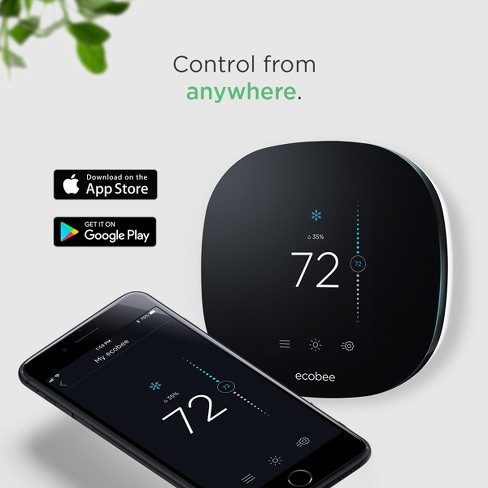 I mentioned my Ecobee thermostat a couple times but I want to highlight just how amazing it is to be able to turn the heat on in the early morning when you're freezing in bed and don't want to get up out of the covers to turn the heat on. Also similarly life-changing when you're hot and want to turn the A/C up. The added benefit of the integration with Alexa means now I don't even have to have my phone. Since I have Alexa devices all around my house, all I have to do is say it to no direction in particular, and one of the devices will pick it up and confirm back that it has adjusted the heat or A/C. I love the vacation mode feature and the app, so that I can make updates on the go. When I lived alone and was going to evening school after work, I basically scheduled it as if I wouldn't be home until midnight, and then whenever I was headed home, I would simply adjust the temperature on my app and the house would be adjusted by the time I got there. My schedule is a little more regular these days, so I usually just keep it on a good schedule and once its adjusted just right, I don't often need to make voice commands or changes on the app.
I mentioned my Ecobee thermostat a couple times but I want to highlight just how amazing it is to be able to turn the heat on in the early morning when you're freezing in bed and don't want to get up out of the covers to turn the heat on. Also similarly life-changing when you're hot and want to turn the A/C up. The added benefit of the integration with Alexa means now I don't even have to have my phone. Since I have Alexa devices all around my house, all I have to do is say it to no direction in particular, and one of the devices will pick it up and confirm back that it has adjusted the heat or A/C. I love the vacation mode feature and the app, so that I can make updates on the go. When I lived alone and was going to evening school after work, I basically scheduled it as if I wouldn't be home until midnight, and then whenever I was headed home, I would simply adjust the temperature on my app and the house would be adjusted by the time I got there. My schedule is a little more regular these days, so I usually just keep it on a good schedule and once its adjusted just right, I don't often need to make voice commands or changes on the app. I also mentioned my garage door opener that came with my new house. It is Chamberland branded and works with the myQ app. One of the dumbest things I get paranoid about is whether or not I shut the garage door. I've left the
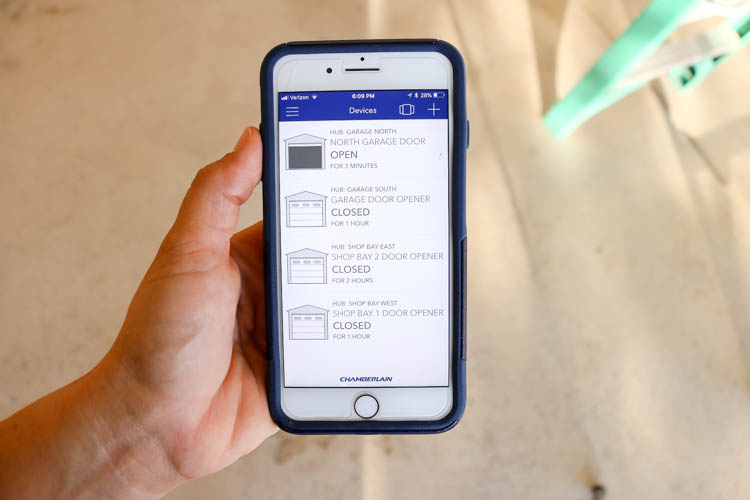 garage door open all night, and since I don't lock the door going into the house from the garage, and I don't lock my cars in the garage, my cars and everything in them as well as my house and my sleeping self was completely exposed to bad actors. Luckily, nothing has ever happened that I know of, but the few times it has been a possibility scares the crap out of me. So the best thing about the myQ app is that it can be set to tell you if the garage has been open for more than 5 minutes. Whether I'm at work or in the house, I will know in short time if I've made that mistake, and can close it from the app without even being home or getting up from the couch or bed or whatnot. The added bonus is that I can open and close it with my phone, so no more running from the button, over the lasers and under the closing door. I added a camera in the garage, so now if my boyfriend is home and happens to leave the garage door open, I can use the camera to peak into the garage to see if he's working in there or doing yard work, etc., or if his car is gone and he forgot to close it. I think all that is pretty neat, but mostly importantly, the alert. It definitely alleviates a lot of anxiety for me.
garage door open all night, and since I don't lock the door going into the house from the garage, and I don't lock my cars in the garage, my cars and everything in them as well as my house and my sleeping self was completely exposed to bad actors. Luckily, nothing has ever happened that I know of, but the few times it has been a possibility scares the crap out of me. So the best thing about the myQ app is that it can be set to tell you if the garage has been open for more than 5 minutes. Whether I'm at work or in the house, I will know in short time if I've made that mistake, and can close it from the app without even being home or getting up from the couch or bed or whatnot. The added bonus is that I can open and close it with my phone, so no more running from the button, over the lasers and under the closing door. I added a camera in the garage, so now if my boyfriend is home and happens to leave the garage door open, I can use the camera to peak into the garage to see if he's working in there or doing yard work, etc., or if his car is gone and he forgot to close it. I think all that is pretty neat, but mostly importantly, the alert. It definitely alleviates a lot of anxiety for me. 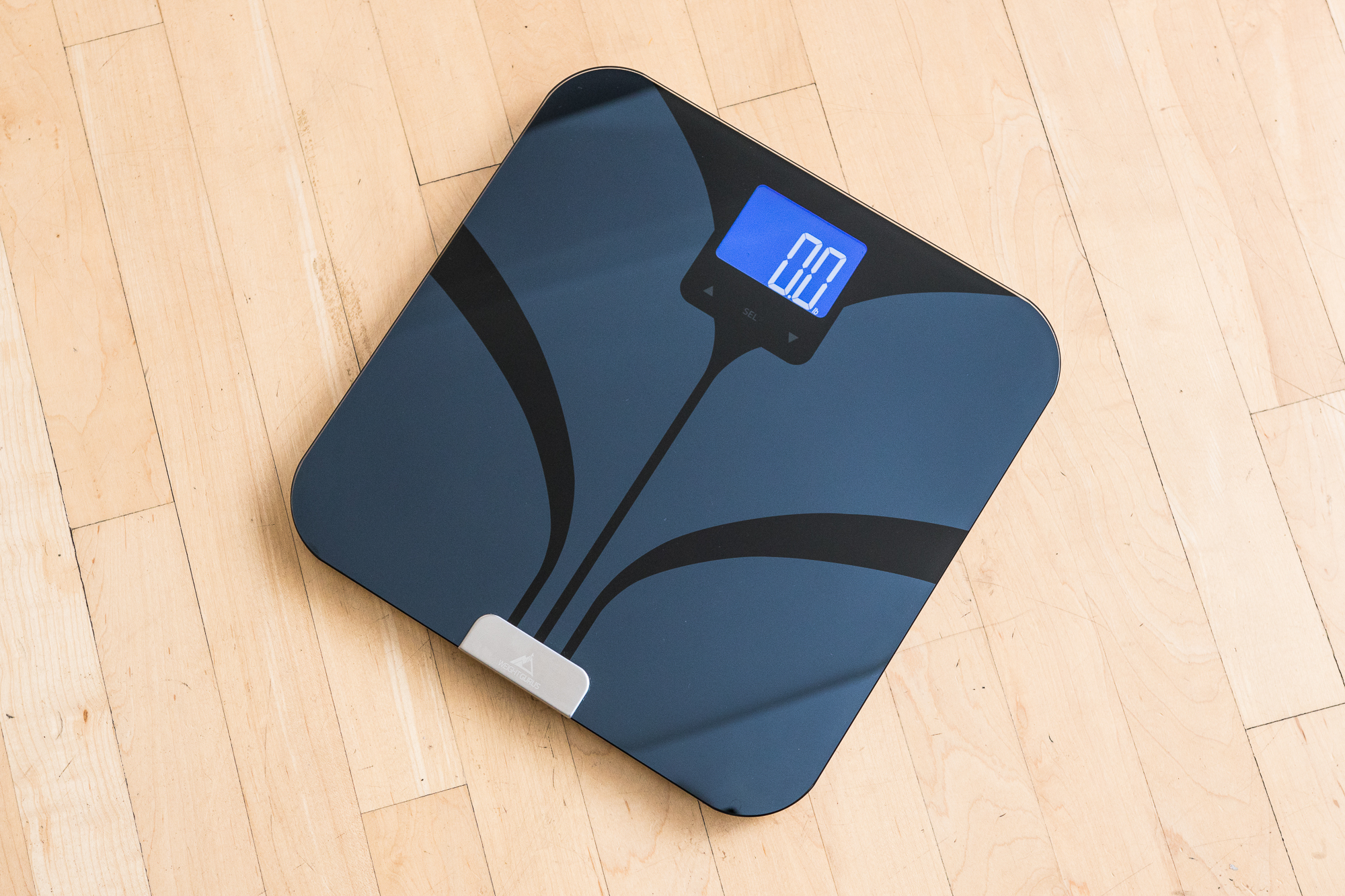 I have a Weight Gurus scale that links to an app on my phone which then links with my FitBit app which also links to the MyFitnessPal app. I love the interconnectivity, and also love that my weight and BMI gets recorded automatically. Even if I forgot or don't bother to sync it with my phone at the time of weighing myself, it will save the data for the next time I open the app to sync it with the scale and fill in all the missed history. It knows the difference between my boyfriend and I (usually - it got confused when I lost weight rapidly once and didn't know who I was for weeks). Overall, it’s a great smart product that makes my life just that much better and reminds me of my health goals.
I have a Weight Gurus scale that links to an app on my phone which then links with my FitBit app which also links to the MyFitnessPal app. I love the interconnectivity, and also love that my weight and BMI gets recorded automatically. Even if I forgot or don't bother to sync it with my phone at the time of weighing myself, it will save the data for the next time I open the app to sync it with the scale and fill in all the missed history. It knows the difference between my boyfriend and I (usually - it got confused when I lost weight rapidly once and didn't know who I was for weeks). Overall, it’s a great smart product that makes my life just that much better and reminds me of my health goals. As far as the Alexa products and service themselves, there is a lot to like, and a few things to really love.
- One feature I've figured out and put to use recently is to set a sleep timer and then play music. You can stream whatever music you want, and it will shut off when the sleep timer runs out so its not playing all night. Love it!
- The whisper feature they show on the commercials actually works pretty well, and I've found that useful.
- I don't use it to manage too much of my life like they show on commercials, like, I don't have it do calendar events or add to my shopping lists or anything like that. But I have a very useful application of the reminder feature: reminding me to check in to a flight 24 hours early. I often have business trips flying out on a Monday, and the day before I'm at home relaxing, reading, etc, and not necessarily paying attention to my phone. My phone may very well remind me to check in, but that's not helpful if I'm not looking at it. So I have Alexa remind me, which interrupts any music or audiobook I'm listening to, and speaks loud enough for me to hear it if I'm watching TV or napping. It's just enough to get my attention to check in right on time, and when you're flying Southwest a lot, you know how important that is!
- The music in multiple rooms seems pretty simple, but is a major reason why I got the devices. The audio books on there are good, too, but like I mentioned before, setting up audiobooks for multiple rooms/speakers has been pretty buggy and doesn't quite work right (yet). It can only improve, I presume, if Amazon knows what's up.
- The devices light up yellow when I have a delivery, which is handy to come home to and see that there may be a package at my door or in my mailbox, if I didn't happen to see it on my camera. Its also handy when I'm just hanging out at the house, as is the camera alert that lets me see that the carrier is delivering something. And for as much as I buy on Amazon, this is a really big deal.
- Turning on and off lights with vocal commands is still a very minor feature for me, more of a bonus I think, but I will admit it is convenient (if not a little enabling of utter laziness) to not have to get up as the sun goes down to turn the light on. It's not as life-changing as controlling the thermostat, for example, but still a nicety. If you have a lot of people in the house, I'd say that there's the added bonus that it doesn't require a person to have the app on their phone, it takes orders from anyone when it comes to turning lights on or off.
- There are, of course, a few Easter Eggs as well as lots of news-related features, but those are mostly novelties in my opinion. The one feature in this category that I do find incredibly useful is asking Alexa if its going to rain today or tomorrow. She is much more efficient in answering this question than I am when trying to find and interpret the weather on whatever app I'm using.
In conclusion, I'm not convinced we're quite ready to say that homes are now really smart yet, but I think there are some neat applications of current technology, and I think there are a lot of opportunities for more exciting applications in the future. Now that I’m bought in, I will hopefully be a part of the early adopter crowd going forward.
